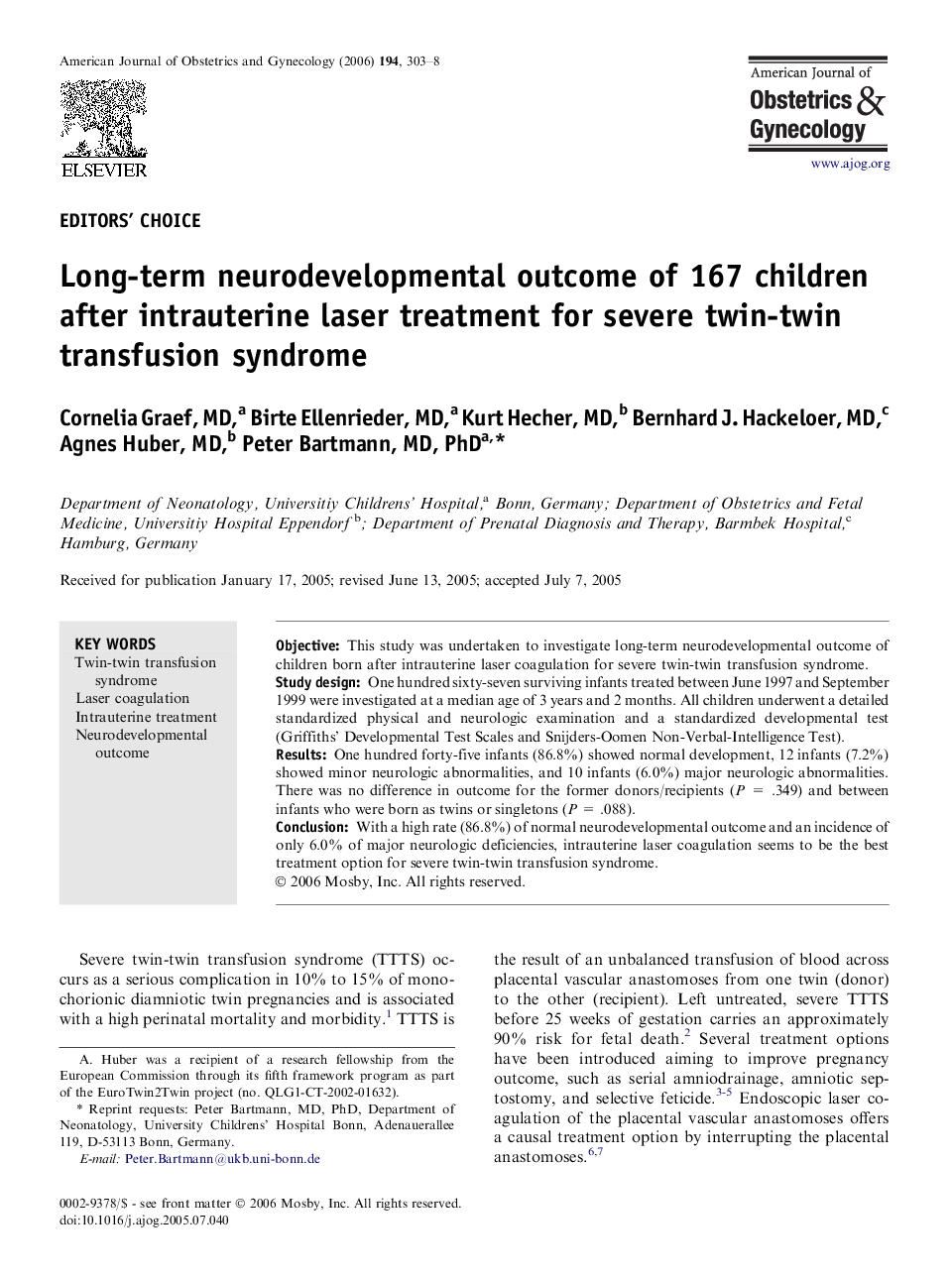| Article ID | Journal | Published Year | Pages | File Type |
|---|---|---|---|---|
| 3441443 | American Journal of Obstetrics and Gynecology | 2006 | 6 Pages |
ObjectiveThis study was undertaken to investigate long-term neurodevelopmental outcome of children born after intrauterine laser coagulation for severe twin-twin transfusion syndrome.Study designOne hundred sixty-seven surviving infants treated between June 1997 and September 1999 were investigated at a median age of 3 years and 2 months. All children underwent a detailed standardized physical and neurologic examination and a standardized developmental test (Griffiths' Developmental Test Scales and Snijders-Oomen Non-Verbal-Intelligence Test).ResultsOne hundred forty-five infants (86.8%) showed normal development, 12 infants (7.2%) showed minor neurologic abnormalities, and 10 infants (6.0%) major neurologic abnormalities. There was no difference in outcome for the former donors/recipients (P = .349) and between infants who were born as twins or singletons (P = .088).ConclusionWith a high rate (86.8%) of normal neurodevelopmental outcome and an incidence of only 6.0% of major neurologic deficiencies, intrauterine laser coagulation seems to be the best treatment option for severe twin-twin transfusion syndrome.
